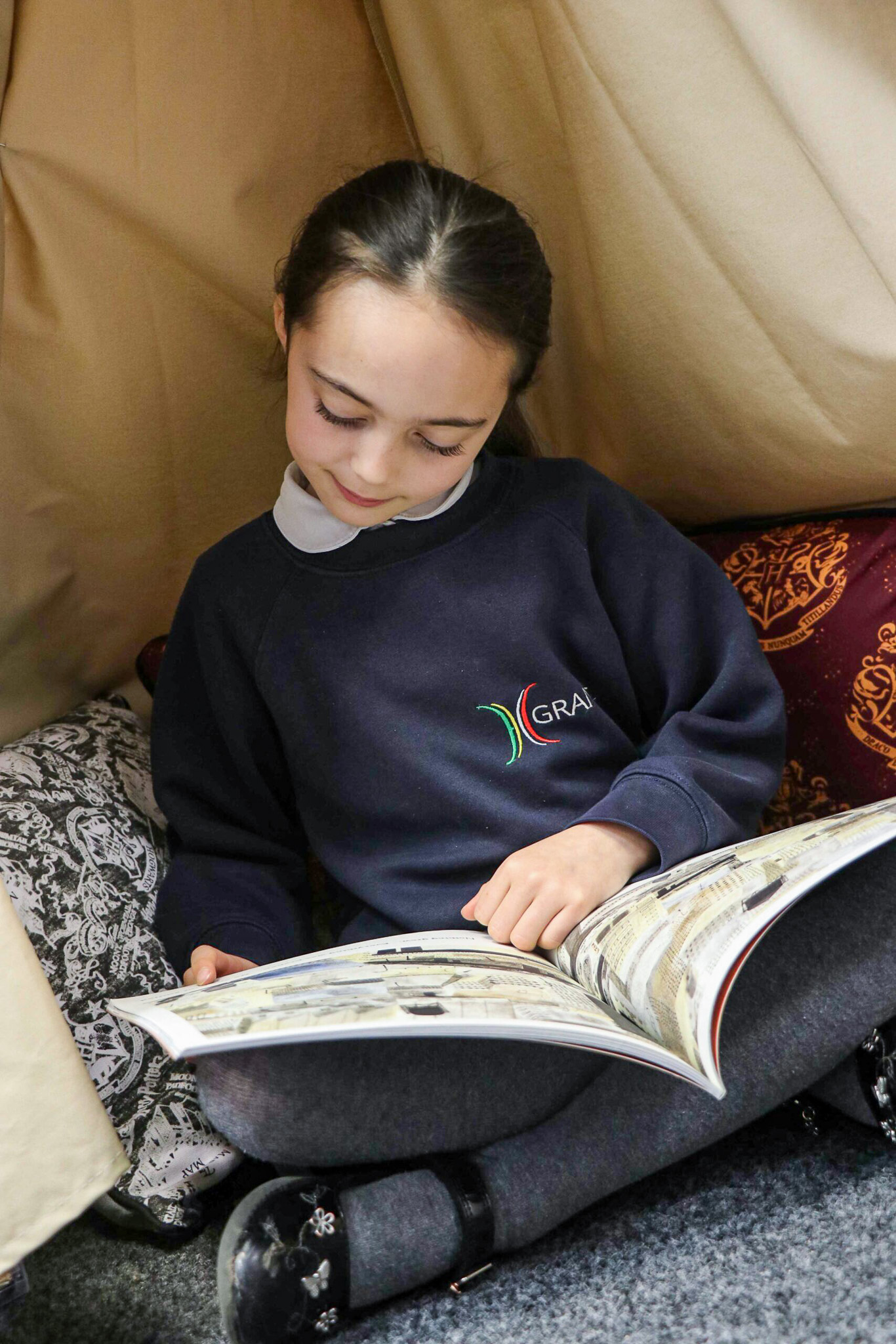Reading
At Grange Community Nursery and Primary School reading is at the heart of our curriculum. Our aim is to instil a love of reading in all our children that will stay with them throughout their lives. We are proud to have created a well-stocked library with a genre of books; poetry, fiction, non-fiction, and story sacks. The library is a calm, literacy haven at the heart of our school, where children can relax and read during dedicated library sessions, in conjunction with using the space for guided and shared reading sessions. Furthermore, each class has their own book corner, where previous and favourite texts are displayed amongst new books and texts. These books are carefully linked to our progressive curriculum.
Children read with staff at least once a week, and we ensure that children who may need additional support read more frequently. The books read in school, in Reception and Year 1, are fully decodable and are aligned with our systematic synthetic phonics programme. In Key Stage 1 children read colour-banded books, according to ability. Children are assessed on a half-termly basis to determine their reading level and to ensure they are reading the appropriate coloured book. Texts from different published reading schemes and picture books are included, as are fiction and non-fiction. We also use a range of decodable books in Key Stage 2 for pupils that benefit from additional support. Once a child has progressed through the colour-banded books they are then known as a Free Reader, and a wider range of books becomes available to delve into.
At Grange Community Nursery and Primary School, we teach early reading through our systematic synthetic phonics programme. Phonics is a method of teaching children the unique code for reading and writing. Each sound (phoneme) in the English language is taught, combined with alternative spelling patterns. Through decoding phonemes, children are able to read and write independently. However, some everyday words cannot be decoded through phonemes, and these tricky words (common exception words) are also taught in phonics lessons. Nursery children begin phonics lessons with phase 1, and children in Reception learn phases 2, 3 and 4. Year 1 moves on to phase 5, and Year 2 finishes the systematic synthetic phonics programme with phase 6. Phonics interventions are also delivered to additional children throughout Key Stage 2 to aid their reading and writing skills.
From Nursery and upwards, all children take books home to share with their families. By sharing and reading a wide variety of books, our children develop and deepen their vocabulary skills and understand text presentation and grammatical features. Reading a variety of books develops good habits and independence. Children read different authors and types of text, such as poetry, stories, reports, explanations and recounts or diaries. They develop preferences and use different styles in their own writing.
With challenging texts in school and taking home books at a comfort level, children gain fluency and mastery in both decoding and understanding their books. In the early years, we develop decoding skills and then move on to develop children’s inference and comprehension, whilst developing a rich and varied vocabulary.
Our aim is to nurture lifelong readers and hope children will curl up with a book and read their favourite stories over and over again. Just for the love of it!

